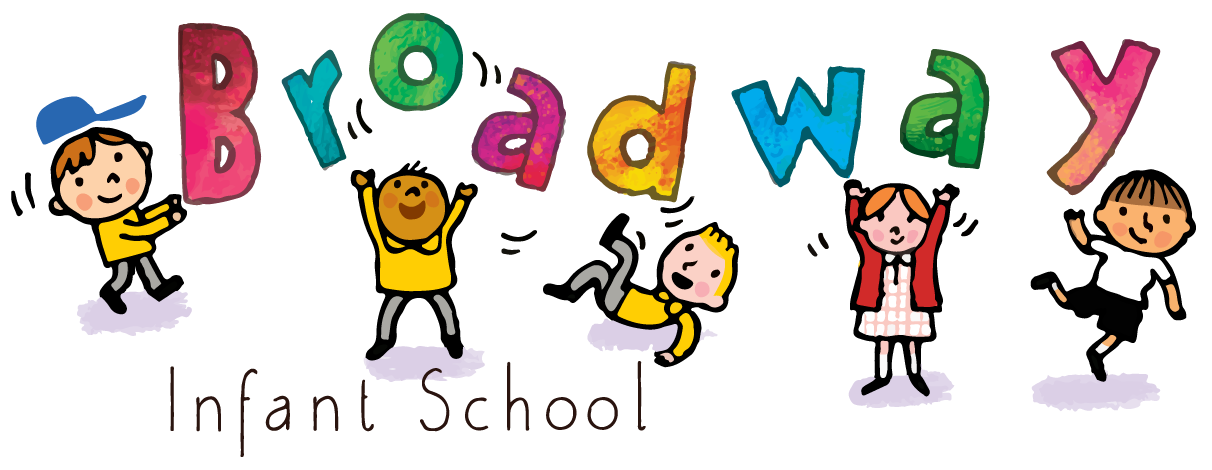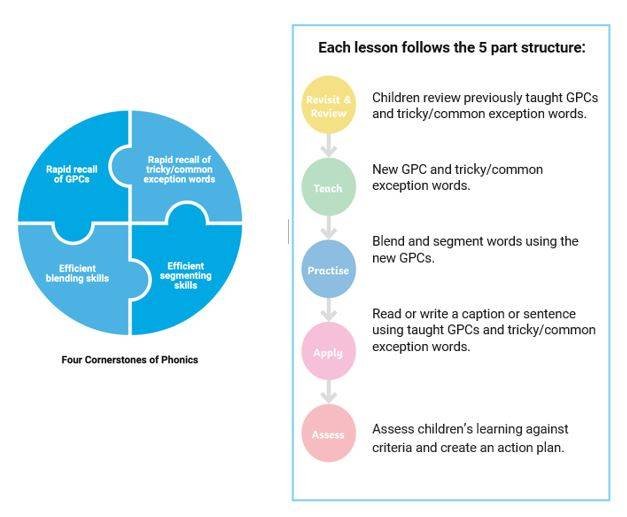Reading and Phonics
Intent
Our intention at Broadway Infant School is for each child to develop an overarching love of reading for pleasure. Our aim is for our children is for them to make excellent progress in reading, developing into fluent, confident readers who have a good understanding of what they read. Children are exposed to high-quality, varied texts and immersed in vocabulary-rich learning environments inspiring them to enjoy learning to read. We recognise that each child has their own starting point and progress and attainment is measured in line with this.
Implementation
Phonics is taught daily in every class. Our whole school phonics programme is Twinkl SSP. We use this scheme as the core of our phonics provision, to plan our phonics lessons and provide all children with an online book matched to the sound they are learning. Lessons will include reviewing previously learned sounds, learning and applying new sounds in reading and spelling and learning to read and spell high frequency words. Children in all classes across the school will have access to intervention support if teachers feel their attainment is below that of their peers.
Reading is taught in a variety of ways, as well as in phonics. Children take part in guided reading sessions as well as whole class reading and comprehension lessons. All classes have a daily class book read to them, and the whole school all learn a Word of the Day (shared with parents) to expand vocabulary knowledge. Reading also plays a large part in daily English lessons based on a quality text used throughout each term. Using a text as a basis for teaching allows explicit comprehension teaching, story-telling and retelling, and vocabulary exploration.
Speaking and listening plays an important part in reading, and this is emphasised in guided reading sessions.
Children are given a book banded reading book and a reading book linked to their stage in their phonics learning so they can practise their reading skill sat home and further develop their love of reading.
Impact
Children at Broadway speak with clarity, expression and confidence to communicate their thoughts whilst also listening to those of others. Children enjoy reading and develop good lifelong reading habits; reading for pleasure and reading for information. Children read audibly, accurately and coherently, adapting their voice to suit a range of purpose, audience or text type. Children are able to explain and discuss what they have read having developed their inference and deduction skills.
Phonics
What Is Phonics?
Phonics is a way of teaching children how to read and write. It helps children hear, identify and use different sounds that distinguish one word from another in the English language. The Department of Education establishes the core criteria for effective systematic synthetic phonics teaching programmes. Using phonics programmes, children are taught to read and write using phonics, which is by directly linking phonemes (sounds in words) and graphemes (the symbols used to represent them).
In the UK, phonics for children is an important feature of the curriculum. Children learn phonics through a curriculum scheme such as Twinkl Phonics. Phonics is considered the best way to teach children to read.
How We Deliver Our Phonics Teaching
We use Twinkl Phonics as our systematic, synthetic phonics programme (SSP). It is high quality and robust in its purpose. With a clear, structured progression through the programme, it allows all of our pupils to meet or exceed the expected standard.
The Twinkl Phonics approach combines rigorous progression with engaging learning materials. We believe that children learn best when they are enjoying their learning and that this comes from a mix of bright, fun and engaging lesson resources within a clear and systematic approach that builds on children’s skills daily.
The structure of every Twinkl Phonics lesson follows this familiar five-part structure to ensure that the four cornerstones of phonics are covered. During our phonics lessons, children will repeat the elements from the four cornerstones of phonics to ensure that they have rapid and automatic recall of GPCs and tricky/common exception words; each day, they will experience blending and segmenting activities to allow regular practice of these core skills.
Stories are used to provide a stimulus and context for phonics teaching in our Twinkl Phonics lessons. The story content also integrates games to practise the skills taught. Our phonics lessons are also supported by weekly decodable minibooks, which are part of our core provision, where children can apply the skills they have learnt in their phonics lessons. As part of our wider SSP provision, there are also follow-up activities that the children can complete independently, in pairs or in groups that relate to the day’s learning.
Year 1 Phonics Screening Check
In the summer term, all children in Year 1 will undertake the National Phonics Screening Check. This is an assessment carried out in school during which the children will be assessed on their ability to segment and blend a range of 40 real and ‘alien’ words. Alien words are a selection of phonetically decodable nonsense words. The words in this assessment gauge the children’s understanding of the phonemes learnt and give the school the knowledge of where the gaps are. If the children are not secure in recognising, segmenting and blending these words and therefore do not pass the assessment, they will be offered further support as they enter Year 2 and will be able to repeat the assessment in the summer term of Year 2. This assessment also allows us to put in specific and personal support for those children who require additional assistance. If a child does not meet the expected standard in Year 2, then phonics teaching and learning will be continued into Key Stage 2.


